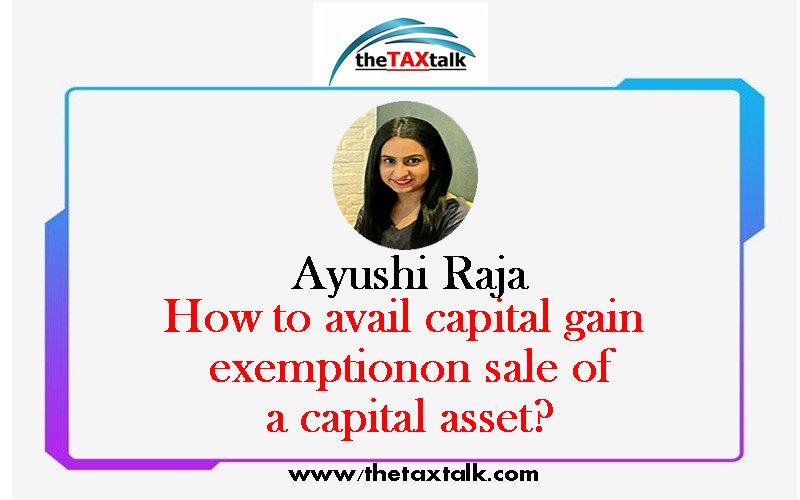![]()
How to avail capital gain exemption on sale of a capital asset ?
Author
Ayushi Raja
(The author is an Article Assistant at SSRPN & CO. Nagpur. She can be approached at cassrpn@gmail.com)
Section 54F of the Income Tax Act 1961 provides that, the assessee can claim exemption in respect of Capital Gain arising in case of transfer of Long Term Capital Asset. For availing the Capital Gain Exemption, the assessee has to make investment out of the Net Sale Consideration in purchase or construction of a Residential House Property.
Some of the criteria for availment of Exemption under Section 54F are as under:
-
Available only for individuals and Hindu Undivided Family (HUFs).
-
The capital gain should arise by the sale or transfer of capital assets other than a residential property.
-
The new residential property must be purchased or constructed out of the net consideration.
-
If the individual does not invest the capital gain within the financial year, then he must deposit the amount in Capital Gain Deposit Account Scheme.
-
Only a single house can be purchased or constructed. You cannot use the money in parts to buy different real estate properties/ House Properties.
-
At the time of the sale of the capital asset, the individual should not own more than one house property.
Circumstances under which Exemption under Section 54F is not available :
-
If the individual owns more than one property at the time of sale of the capital asset, then the exemptions are not applicable. It is applicable only if the individual had purchased the second property for claiming the exemption under Section 54F.
-
The exemptions are not applicable when the individual buys other residential properties within a year from the date of sale of capital asset.
-
Individuals cannot avail exemption under Section 54F if they buy property outside India.
-
The exemptions are not applicable when the individual constructs other residential properties within a year from the date of sale of capital asset.
Calculation of Deduction under Section 54F shall be as under :
Amount of Deduction/Exemption =
Net Consideration Long Term Capital Gain / Amount Re-invested
Capital Gain Deposit Account Scheme (CGDAS) :
The provisions of section 54F allow the assessee to re-invest in any of the following manner –
-
In case of purchasing of the residential house, the assessee can invest one year before or two years after.
-
In the case of constructing a new residential house – the assessee can construct within a period of three years.


